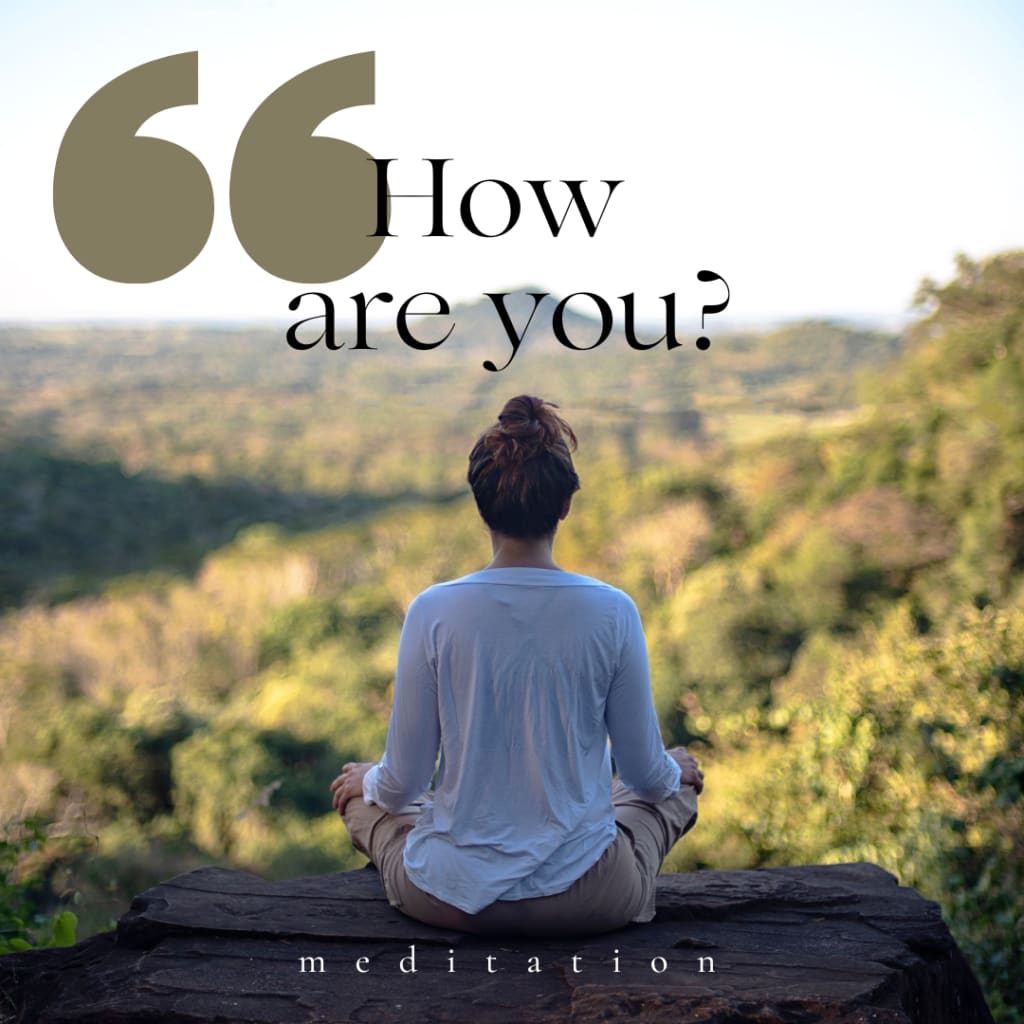
Meditation can be an excellent way to achieve mental clarity, reduce stress, and promote overall well-being. One of the most important aspects of meditation is creating an environment that allows you to focus and relax. Music can play a significant role in setting the tone for your meditation practice, and there are specific types of music that can enhance your experience.
Blissful melodies are the perfect background for meditation. They are soothing, calming, and can help you achieve a state of relaxation that is necessary for deep meditation. Here are some types of blissful melodies that you may want to consider incorporating into your meditation practice:
Nature sounds: The sound of running water, chirping birds, or rustling
Meditation music is a type of music that is specifically designed to help people relax and enter a meditative state. It usually involves soothing sounds, such as gentle melodies, calming rhythms, and peaceful nature sounds like rain, ocean waves, birds, and wind chimes. The music is intended to create a tranquil atmosphere that allows the mind to quiet down, helping the listener to focus on their breath or any other meditative technique. Meditation music can be used during meditation practice, yoga, or just as a tool for relaxation and stress relief.
leaves can be incredibly calming and grounding. Many people find that listening to nature sounds can help them connect with their surroundings and enter a state of peace and tranquility.
Ambient music: Ambient music is a genre of music that is designed to create a specific mood or atmosphere. It is often characterized by its slow tempo, minimalistic instrumentation, and atmospheric textures. Ambient music can be an excellent choice for meditation because it can help you focus your mind and let go of distractions.
Instrumental music: Instrumental music, such as classical music or instrumental versions of popular songs, can be an excellent choice for meditation. The absence of lyrics can help you focus on the music itself and can prevent your mind from wandering.
Binaural beats: Binaural beats are a type of auditory illusion that occurs when two different tones are played in each ear. The brain interprets the difference in frequencies as a new tone, which can create a sense of relaxation and calmness. Binaural beats are often used in meditation to help entrain the brain to a particular frequency associated with relaxation.
When selecting music for your meditation practice, it's essential to choose music that resonates with you and helps you achieve a state of relaxation. Experiment with different types of music to find what works best for you, and remember that there is no right or wrong way to meditate. The most important thing is to find a practice that works for you and to commit to it regularly.
Relaxing music can have numerous benefits for our mental and physical health, including:
Reducing stress and anxiety: Listening to calming music can help lower cortisol, the hormone that causes stress, and decrease feelings of anxiety.
Improving sleep: Relaxing music can promote relaxation, reduce muscle tension, and help slow down breathing and heart rate, all of which can improve the quality of sleep.
Enhancing mood: Listening to music that makes you feel happy or peaceful can trigger the release of endorphins, the body's natural feel-good chemicals, and improve your overall mood.
Boosting focus and productivity: Calming music can help you enter a state of relaxation, which can enhance your ability to concentrate and be productive.
Easing pain and discomfort: Studies have found that listening to music can reduce pain perception and help manage symptoms of chronic pain conditions.
Lowering blood pressure and heart rate: Relaxing music can help reduce blood pressure and heart rate, which can help improve cardiovascular health.
Overall, listening to relaxing music can be a simple and effective way to improve our physical and mental well-being.
Learning to relax by listening to music can be a great way to reduce stress and promote a sense of calm. Here are some steps to help you get started:
Choose the right music: Select music that you find soothing and calming. This can be different for everyone, but classical music, ambient sounds, or instrumental music are often good choices. Avoid music with lyrics, as they can be distracting.
Find a quiet place: Find a quiet, comfortable place where you can listen to music without any distractions. This could be a bedroom, living room, or even outside in nature.
Get comfortable: Get comfortable in your chosen spot. You may want to lie down, sit in a comfortable chair, or even sit cross-legged on the floor. Make sure you're in a position where you can relax and won't be interrupted.
Focus on the music: Close your eyes and focus on the music. Try to listen to the sounds and let your mind become absorbed in the melody. If your mind wanders, gently bring it back to the music.
Breathe deeply: Take slow, deep breaths as you listen to the music. Inhale through your nose and exhale through your mouth. This will help you relax and calm your mind.
Practice regularly: To get the most benefit from listening to music for relaxation, make it a regular practice. Set aside time each day or week to listen to music and unwind.
Remember that learning to relax takes time and practice, so be patient with yourself. With regular practice, you'll find that listening to music can be a powerful tool for reducing stress and promoting relaxation.
Meditation music can offer a range of benefits, including:
Reducing stress and anxiety: Meditation music can help calm the mind and reduce stress and anxiety levels, promoting a sense of relaxation and inner peace.
Improving focus and concentration: The soothing sounds of meditation music can help enhance concentration and focus, making it easier to enter a meditative state and stay focused during meditation practice.
Promoting better sleep: Listening to meditation music before bed can help relax the mind and body, making it easier to fall asleep and improve the quality of sleep.
Boosting mood: Meditation music can elevate mood and increase feelings of happiness and well-being.
Lowering blood pressure and heart rate: Listening to calming music can help reduce blood pressure and heart rate, promoting overall cardiovascular health.
Overall, meditation music can be a helpful tool in promoting relaxation, reducing stress, and improving mental and physical well-being.
Meditation can be a valuable practice for reducing stress, increasing focus, and improving overall well-being. Here are some steps you can take to practice meditation every day:
Set aside time: Choose a time of day when you can consistently practice meditation. This could be first thing in the morning, during a lunch break, or before bed.
Find a quiet and comfortable space: Choose a space where you can sit or lie down comfortably without distractions. You may also want to use a cushion or blanket to make your meditation more comfortable.
Decide on a technique: There are many different meditation techniques to choose from, including mindfulness meditation, body scan meditation, and loving-kindness meditation. Experiment with different techniques to find one that resonates with you.
Start with a short session: When you're first starting out, it's best to start with short meditation sessions, such as five or ten minutes. As you become more comfortable with the practice, you can gradually increase the length of your sessions.
Focus on your breath: Regardless of the meditation technique you choose, it's helpful to focus on your breath. Pay attention to the sensation of your breath as it moves in and out of your body.
Be patient and non-judgmental: Meditation is a practice, and it takes time to develop. Be patient with yourself and avoid judging your thoughts or experiences during meditation.
Make it a habit: Try to practice meditation every day, even if it's just for a few minutes. Over time, meditation can become a habit that supports your overall well-being.
Remember, meditation is a personal practice, so find what works for you and make it a part of your daily routine.
Meditation can be a powerful tool for discovering more about yourself and your inner world. Here are some steps you can follow to use meditation to help you discover more about yourself:
Find a quiet and comfortable place where you can sit and meditate without distractions.
Set an intention for your meditation. You might want to focus on self-discovery or gaining insight into a specific aspect of your life.
Close your eyes and focus on your breath. Notice the sensation of your breath moving in and out of your body.
As thoughts come into your mind, acknowledge them but then let them go. Bring your attention back to your breath.
As you continue to meditate, you may start to notice patterns in your thoughts or emotions. Pay attention to these patterns and see if you can identify any underlying beliefs or fears that may be driving them.
Practice self-compassion and non-judgment as you explore your inner world. Remember that discovering more about yourself is a journey and there is no right or wrong way to do it.
After your meditation, take some time to reflect on any insights or experiences you had. You may want to journal about your experience or talk to a trusted friend or therapist about what you discovered.
Remember that meditation is a practice, and it may take time and patience to see results. With consistent practice, however, you can use meditation to gain deeper insights into yourself and your inner world.
Meditation is a great tool for reducing stress and promoting overall well-being. Here is a simple meditation practice you can try for stress reduction:
Find a quiet place where you can sit comfortably and uninterrupted for a few minutes.
Close your eyes and take a few deep breaths, allowing yourself to fully relax.
Focus your attention on your breath, noticing the sensation of the air moving in and out of your body.
As thoughts arise, simply observe them without judgment or attachment and return your attention to your breath.
Continue to breathe deeply and focus on your breath for several minutes, allowing your body and mind to fully relax.
When you feel ready, slowly open your eyes and take a few deep breaths before returning to your daily activities.
Remember that meditation is a practice, so it's important to approach it with patience and kindness toward yourself. Even a few minutes of meditation each day can have a profound impact on your stress levels and overall well-being.
Meditation is a powerful practice that can help you reduce stress, improve focus, and cultivate a sense of inner peace. Here are some tips for beginners to get started with meditation:
Start with a comfortable posture: Find a comfortable seated posture that you can maintain for the duration of your meditation. You can sit on a cushion, a chair, or the floor, but make sure your back is straight and your shoulders are relaxed.
Set a timer: Set a timer for your meditation session. Start with just a few minutes and gradually increase the duration as you get more comfortable with the practice.
Focus on your breath: Focus on your breath as you inhale and exhale. Count each breath to help you stay focused.
Let thoughts come and go: It's normal for your mind to wander during meditation. When this happens, simply acknowledge the thought and gently return your focus to your breath.
Practice regularly: The more you practice meditation, the easier it becomes. Try to make it a regular part of your daily routine.
Be patient with yourself: Meditation is a practice, and it takes time to develop. Don't get discouraged if you find it difficult at first. With consistent practice, you'll start to see the benefits.
Consider using a guided meditation app: There are many apps available that offer guided meditations for beginners. These can be a helpful way to get started and stay on track with your practice.
Remember, meditation is a personal practice, and what works for one person may not work for another. Experiment with different techniques and find what works best for you.
About the Creator
Anitha
I’m a writer, "The Importance of Mindfulness in a Busy World" Currently trying to write a book. Writing about anything and everything






Comments
There are no comments for this story
Be the first to respond and start the conversation.